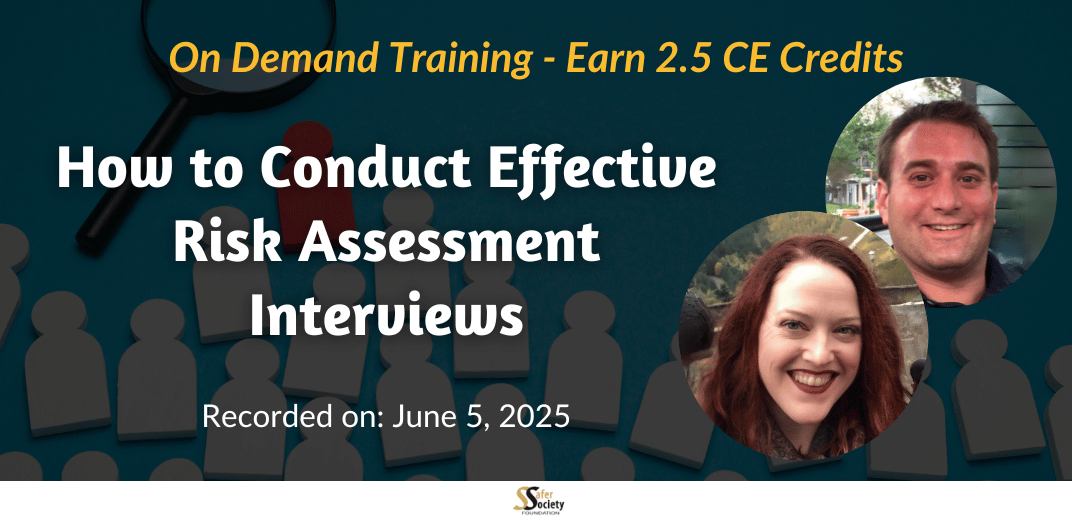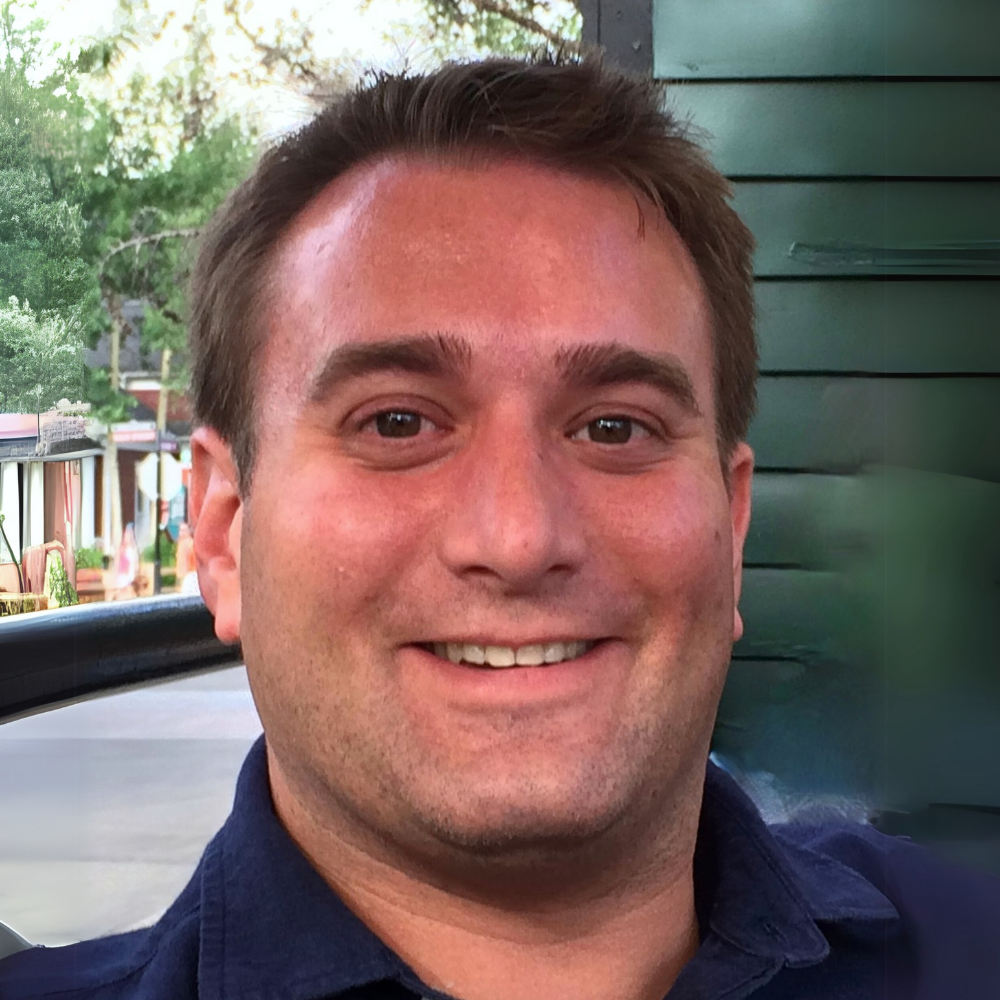
How to Conduct Effective Risk Assessment Interviews
Already purchased an On Demand training?
Click here to access your Safer Society On-Demand Training Center account.

Conducting interviews for the purpose of risk assessment can be akin to learning a new language. Newer members of the profession can often feel uncomfortable and even clumsy when conducting risk assessment interviews. Becoming more effective at this type of interviewing requires practice and repetition. Determining what information is relevant and utilizing the right process to obtain it can make the difference between an effective and ineffective assessment, particularly when examining dynamic risk.
In this training, Dr. Griffith and Mr. Wescott explore the elements of effective clinical interviews and the characteristics of the interviewer. They review strategies and pitfalls such as:
- The use of interview templates
- Skills from motivational interviewing
- Assumptions around the use of jargon
- The Columbo approach
- Interpreting meaning without clarification
The presenters distinguish between the “risk language” found in client records and the risk language of clinical interviews; then offer strategies for balancing the challenges of time limitations and evaluator perfectionism. They round out the training with case examples of dynamic risk assessments.
1) Identify three effective interview techniques for performing psychosexual evaluations
2) Describe risk and protective information obtained through interviews
3) Analyze interview responses to use risk assessment measures more efficiently
4) Explain four characteristics of an effective interviewer
Audience
This training is primarily for professionals who assess risk in adults who have sexually abused others. This includes mental health counselors, social workers, clinical psychologists, and forensic experts. It is also of interest to those assessing risk for violence and other harmful behaviors.
Content Level
Disclosure
Continuing Education Approval
American Psychological Association (APA)
Safer Society Foundation, Inc. is approved by the American Psychological Association (APA) to sponsor continuing education for psychologists. Safer Society Foundation, Inc. maintains responsibility for this program and its content.
Who's Presenting

Amy Griffith, PhD, LP
Dr. Griffith is a licensed psychologist who has worked in the field of sexual abuse and violence prevention since 2005 in various capacities, including community, civil commitment, and correctional settings. She initially worked with victims of trauma, then children and adolescents with problematic sexual behavior, and predominantly adult men and women who have committed sexual offenses. Currently, she serves as Statewide Clinical Director of Sexual Offense Services in the Missouri Department of Corrections, employed by Centurion, where she oversees the assessment, treatment, and program development for persons incarcerated for sexual offenses. She also performs evaluations and expert witness testimony for individuals being evaluated for Sexually Violent Predator civil commitment. She is a Clinical Member of ATSA, as well as a member of the Public Policy and (effective 2023) the Adult Clinical Committees. She is also the President of the Missouri Association for the Treatment of Sexual Abusers (MoATSA), in the process of reviving and expanding the state chapter.

Seth Wescott, LMLP, ATSA-F
Seth Wescott is a Licensed Master’s Level Psychologist and has been working with individuals with problematic sexual behaviors since 2002. He has worked in maximum security prisons for both adults and adolescents as well as various community-based settings. In private practice, Seth conducts pre-disposition and pre-adjudication psychosexual evaluations of adults and adolescents. He serves as chair of the ATSA Public Policy Committee, and is an ATSA Fellow. He is a certified trainer for Static-99R, Stable-2007, and Acute-2007 risk assessments. Seth is a Professor of the Practice at the University of Kansas and an Adjunct Professor of Counseling at Mid-America Nazarene University.
